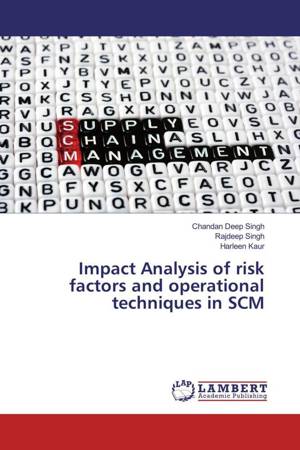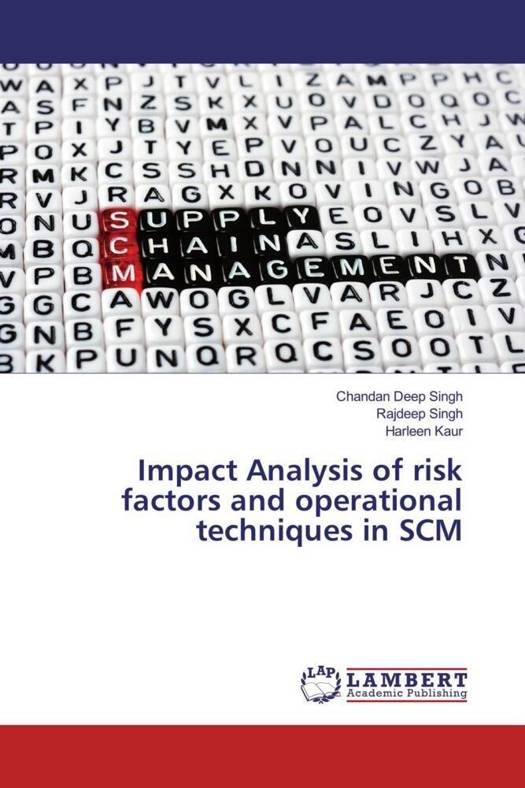
- Afhalen na 1 uur in een winkel met voorraad
- Gratis thuislevering in België vanaf € 30
- Ruim aanbod met 7 miljoen producten
- Afhalen na 1 uur in een winkel met voorraad
- Gratis thuislevering in België vanaf € 30
- Ruim aanbod met 7 miljoen producten
Impact Analysis of risk factors and operational techniques in SCM
Chandan Deep Singh, Rajdeep Singh, Harleen Kaur
Paperback | Engels
€ 35,45
+ 70 punten
Omschrijving
Supply Chain Management (SCM) is the process of designing, planning, execution, control and monitoring of supply chain activities with the objective of creating net value, building a competitive infrastructure, leveraging worldwide logistics, synchronizing supply with demand and measuring performance globally. SCM originated from MRP, followed by MRP-II. For an industry to be competitive, it needs to be agile that is, produce new products adequately, condusively, quickly and more imperatively the product should be an innovative and improved one. SCM is quite n proficient process of doing things systematically. During its implementation, some risks are always involved. Some of the critical risk factors involved are: supply risks, operational risks, demand risks, security risks, competitive risks, resource risk. The present study concentrates on study of these critical factors that are involved in implementation of SCM in manufacturing industry.
Specificaties
Betrokkenen
- Auteur(s):
- Uitgeverij:
Inhoud
- Aantal bladzijden:
- 80
- Taal:
- Engels
Eigenschappen
- Productcode (EAN):
- 9786202021210
- Uitvoering:
- Paperback
- Afmetingen:
- 150 mm x 220 mm

Alleen bij Standaard Boekhandel
+ 70 punten op je klantenkaart van Standaard Boekhandel
Beoordelingen
We publiceren alleen reviews die voldoen aan de voorwaarden voor reviews. Bekijk onze voorwaarden voor reviews.









